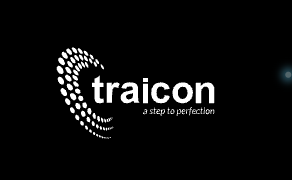






















AI in Science & Research: The Latest Discoveries
In an age of rapid technological advancement, artificial intelligence and data science have become more than just tools - they are the driving forces behind the transformation of nearly every aspect of modern life, from medicine to the environment, from finance to the arts. Research in these fields lies at the very heart of innovation: this is where algorithms are born.
AI data science summit vs AI data science conference
The exchange of knowledge between researchers, engineers, business leaders and society at large has become critically important - and this is precisely the role that professional Data Science and AI Events fulfil today. These gatherings are not just formal assemblies; they are vibrant hubs of ideas, insights, and strategic networking.
AI for science summit: inspiration and collaboration
AI and data science summits are generally tailored towards a business- oriented audience. These events are highly practical in nature, with a focus on real-world case studies, the implementation of AI technologies, and digital transformation strategies. Unlike academic conferences, summits tend to avoid delving into the technical intricacies of algorithms. Their primary objective is to showcase how AI and data science can be effectively applied in the here and now to improve business operations.
That’s why you’ll often find CEOs, heads of innovation, startup founders and investors in attendance - individuals looking for inspiration, meaningful connections and answers to the question: “How can I harness these technologies to the greatest advantage?”
Summits usually follow a compact format - one or two days packed with keynote speeches and panel discussions. The communication style is dynamic and often informal, which fosters a productive dialogue between industry and technology leaders.
AI in science conference: research and development
Conferences, on the other hand, go much deeper. Their core focus lies in cutting-edge research, novel methodologies, and technological development. These events serve as platforms for the exchange of knowledge between academics, data scientists, and technical professionals. Here, attendees explore the architecture of neural networks, emerging machine learning techniques, model interpretability, and even the ethical challenges posed by AI.
Typically lasting from three to five days, conferences feature a wide range of content - from AI for science workshops to technical presentations and poster sessions. And while summits might revolve around how AI optimises logistics or marketing, conferences might instead explore how diffusion models generate images or how to design neural networks that work efficiently with limited computational resources.
Which one to choose?
The choice between a summit and a conference depends largely on your goals. If you're interested in understanding how AI is transforming industries, and want to engage with business cases and decision-makers, a summit is likely the right fit. But if you’re looking to deepen your technical expertise, engage with cutting-edge research, or even present your own work, then a conference is definitely the better option.
Ultimately, on a global scale, these two formats complement each other. Without a solid scientific foundation, there can be no true innovation - but without business application, that innovation loses its relevance.
How to promote a niche event
If you're not just attending but organising an upcoming event like the Global AI Finance Research Conference or the AI and Data Science Conference 2025, logistics alone won't be enough. It's not just about getting the event off the ground - it's about reaching the right audience with the right message.
Many organisers start with the standard toolkit: social media, press releases, and partner email campaigns. These are all effective - but only as a starting point. In niche fields like artificial intelligence, the real key to success lies in being present where your target audience already gathers. This is where specialised platforms like allai.events come into play.
To make the most of this potential, it's worth reviewing the pricing options and considering paid promotional packages. These often pay for themselves by attracting a high-quality audience and opening doors to valuable partnerships.
And to ensure that nothing important gets overlooked in the whirlwind of event planning, it’s a good idea to check out the platform’s blog. It features regular updates on key trends, news, and the wider state of play in the AI and data science landscape - a great way to stay informed and enhance your expertise without losing focus on the organisational side.
